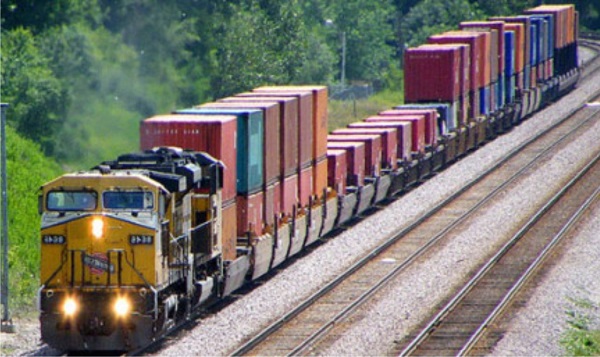Developing Nigeria’s Maritime Industry Through Arbitration, Connectivity
Nigeria is endowed with vast hinterland, coastline and navigable inland waterways and is strategically placed on the Atlantic coast of West Africa. About 76% of the shipping business that takes place in West Africa is carried out in Nigeria, which makes Nigeria a very important coastal State in Sub-Saharan Africa.
Therefore, the Nigerian ports have become a major source of the nation’s revenue. Although, these facts are encouraging, the nation is still miles away from achieving its aim of becoming the hub of maritime activities in the West and Central African sub-region. Some of the issues responsible for shortchanging the nation’s maritime business activities include; the absence of an efficient multimodal transport system, effective use of Inland Container Depots (ICDs) and the proliferation of arbitration in resolving maritime disputes.
Some of these issues were deliberated by various maritime veterans at the just concluded 2-day global maritime business conference organized by Zoe Maritime Resources Limited last week and MMS Plus was there to bring you the thoughts of several maritime experts on how to advance the nation’s maritime sector.
The increase in the volume of international trade involving several coastal states in Africa relating to incoming and outgoing cargo has ensured that maritime disputes are bound to arise. Maritime transactions and consequently maritime disputes have become an ever present feature in the African business landscape.
The scope maritime disputes covers a wide range of areas such as; Charter parties, Bills of lading, Sale of ships, Ship financing, Ship building contracts, Contracts of marine insurance, etc. Maritime disputes usually span oceans and are international in nature and time is usually of the essence, especially as goods may perish or deteriorate quickly and demurrage may be payable as soon as a ship is later than its scheduled time.
Speaking at the just concluded Global Business to Business maritime conference, Mrs. Dorothy Ufot (SAN), stated that it is noteworthy that arbitration agreements concerning charter parties are contained in standard forms of contract, which contain arbitration clauses and are rarely negotiated.
According to her, exporters and importers should also be aware that several bills of lading (documents evidencing receipt of goods for shipment issued by the transporter or freight forwarder) incorporate by reference, maritime arbitration clauses.
“The validity of such clauses often times give rise to numerous disputes. Bills of lading which are transport contracts are, determine inter alia, how goods shall be shipped, when they should arrive at destination and sometimes, where and how the quality of the shipped goods shall be verified.
“Sometimes the parties have not signed an agreement or have not been able to sign an agreement because action must be taken urgently e.g. in the case of the rescue of a ship. In accordance with the particular practices of some harbour or ports, in the absence of any written document, parties may find themselves bound by an arbitration agreement, merely on the basis of an oral acceptance of certain assistance e.g. ship rescue.
According to Mrs. Ufot, one of the most critical challenges of the enforcement of foreign arbitral award in Nigeria is the multiplicity of laws governing enforcement of foreign arbitral awards in Nigeria e.g. Section 2 (1) of Foreign Judgments (Reciprocal Enforcement) Act CAP.F35 LNF, 2004, which defines judgments as including an Arbitration Award.
She noted that Nigeria, and indeed many African countries, is a signatory to the New York Convention 1958 on the Recognition and Enforcement of Foreign Arbitral Awards, lamented that Nigerian courts are obligated to recognize and enforce valid and subsisting foreign arbitral awards in Nigeria.
“The New York Convention has been domesticated in Nigeria and forms part of our Arbitration and Conciliation Act, Cap. A18, LFN, 2004, IN SCHUDULE II of the Act. Apart from the New York Convention, Section 51 of the ACA provides for the enforcement of foreign arbitral awards, irrespective of the country of the award”, she said.
Dorothy suggested that Nigeria could create an attractive venue for international arbitration if Nigerian judges are trained in the practice and procedure of arbitration.
“Judges must support the arbitration process and enforce arbitration agreements and arbitration awards and be wary of granting anti-arbitration injunctions.
“Recognition and enforcement of arbitral awards must be refused only under the circumstances set out in Article V of the New York Convention and Sections 52(2)(b)(i) and (ii) of the Arbitration and Conciliation Act. The procedure for enforcement of arbitral awards and agreements must be simplified and expedited” she added.
Meanwhile, Managing Director of Max Africa Logistics Services Limited, Port- Harcourt, Mr. Ben Owiriwa posited that port development and connectivity is of utmost importance if the nation intends to participate effectively in international trade.
Ben Owiriwa noted that the emergence of the high-capacity ships been built today with capacities of 19,200 (TEUs), Nigerian ports must be developed must guarantee sufficient draft, extensive quay side and modern gantry cranes to accommodate the bigger vessels, offload the containers and speed up the turnaround for vessels to minimize demurrage.
“With the expansion of the container industry, the structure and organization of terminal operations will change. Today there are three categories of container terminal operators: (i) port authorities that have decided to become directly involved in handling containers, such as the public ports of Singapore and the Virginia Port Authority in United States. However, this category has been on the decline with the emergence of port corporations; (ii) private port terminal operating companies involved in a process of concentration, including stevedoring. (iii) the shipping lines that have decided to control and manage their own container terminals” Owiriwa said.
Ben Owiriwa also called for the development of port services via increased use of computerized systems and information technology, such as the Electronic Data Interchange (EDI) system and the internet for efficiency in the maritime transport sector and the ports.
According to him, such advancement would increase the transport capacity to speedily provide required data on the exact location and status of cargo, as well as on all logistical and institutional aspects of port operations.
“All port and shipping industry sectors will continue to invest in new systems and channels of communication. The industry will be moving towards a paperless world in which all types of information are handled electronically. Use of the Internet for electronic commerce is also important.
“Delaying the development of port infrastructure will only result in higher social costs in the medium and long term. While it is important to define a port system be it public, private, or a combination of the two, it is essential to have the means and facilities for achieving levels of efficiency to be able to adapt to the requirements of world trade and compete successfully”, Owiriwa stated.
Today, it is the responsibility of the governments, operators, shipping companies, service providers, and workers to work together to support the development of our ports, our road and rail networks and our economies.
However, while the concept of dry port in Nigeria gradually gains more usability and acceptability in the phrase “Inland Container Depot” abbreviated as “ICD”. The Managing Director, Koolman Energy Limited, Mr. Bodunrin Oriade also delivered a paper on “Maximizing International Trade through Dry Ports”.
According to Mr. Bodunrin, the proximity of some Nigerian states to some African states that are landlocked means that such states could face tough challenges accessing the services of seaports, but this is an added advantage for the project of dry port to thrive.
He asserted that the absence of waterfronts explains why current moves to take shipping services closer to the door steps of importers and exporters, otherwise referred to as shippers, through Inland Container Depots (ICDs), known as dry ports, and truck transit parks, all to be located in the six geographical zones of the country.
Through ICDs, Nigerian shippers can carry out international trade in terms of export and import services from any part of the country.
However, Mr. Bodunrin lamented that the Kaduna Dry Port was the only one among the six ready for business with the status of port of origin granted by the federal government on 15th of March, 2006 granted approval to the Kaduna ICD to operate as a Port of Origin for both export and import and the approval was gazetted on 26th may 2016. The dry port will be operated as a joint venture with the Kaduna State government.
Similarly, the Niger Dry Port has been structured to be multi-modal with a connection to a new railway project linking the Port of Cotonou (Benin) and Niger. When completed, Dosso dry port platform will be the largest multi-modal cargo handling centre for imports from Benin. IFC and DevCo has been working to attract the private sector to the development and operation of the greenfield Dosso site and the existing Niamey Rive Droite platform. Being the first of its kind in Niger, the Niger Dry Port Project required extensive legal and technical support to structure an attractive and bankable deal with appropriate regulatory frameworks in place to ensure its success. According to IFC recommendations, the government of Niger Republic created a Dry Port Authority in 2014 with responsibility for conceding and monitoring.
IFC, DevCo and the government of Niger, were involved in prequalifying a private operator, Bolloré Africa Logistics (BAL), to build, develop and operate both dry ports. BAL won a 20-year concession, investing $77m and providing guaranteeing fees to the government of Niger of $48m over the concession lifespan.
When sorting and processing of goods are moved inland, the Niger Dry Port will reduce congestion at the seaports. Inland processing will provide employment opportunities in Niger and will add value further to the supply chain. The Niger Dry Port will provide faster, more affordable links to coastal ports, facilitating efficient international trade while investment in transportation assets will enable Niger to accelerate the flow of cargo from ships to inland destinations. The project if well managed has the potential to position Niger and Nigeria as important trade hubs.
Discover something new.









